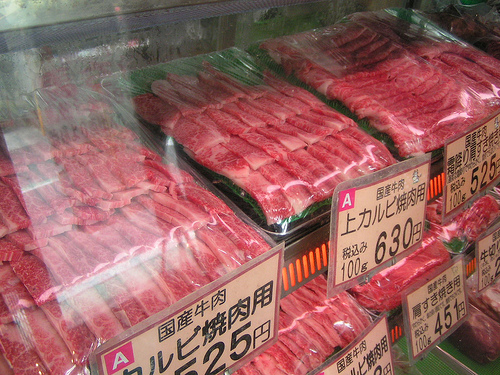
Agricultural News
Trade Rep, Ag Secretary Announce Agreement to Open Japan's Market to U.S. Beef
Mon, 28 Jan 2013 11:22:14 CST

United States Trade Representative Ron Kirk and United States Agriculture Secretary Tom Vilsack today announced that the United States and Japan have agreed on new terms and conditions which pave the way for expanded exports of U.S. beef and beef products to Japan. Under these new terms, which enter into effect on February 1, 2013, Japan will now permit the import of beef from cattle less than 30 months of age, compared to the previous limit of 20 months, among other steps. It is estimated that these important changes will result in hundreds of millions of dollars in exports of U.S. beef to Japan in the coming years. This agreement also goes a long way toward normalizing trade with Japan by addressing long-standing restrictions that Japan introduced in response to bovine spongiform encephalopathy (BSE).
"This is great news for cattlemen and women and is a significant milestone in our trading relationship with Japan," said National Cattlemen's Beef Association President J.D. Alexander. "Japan is a great market for U.S. beef and we look forward to continuing to meet Japanese consumer demands. This move is an important step forward in paving the way toward greater export opportunities to one of our largest export markets."
Through November 2012, Japan was the second largest export market for U.S. beef totaling $849 million and nearly 130,000 metric tons. Alexander added that this announcement is a shot in the arm to a market and producers facing continued drought, high input costs and increasing federal regulation.
The United States and Japan also agreed to regular and ad hoc consultations to review progress under the agreement and address any issues that may arise. In an accompanying letter exchange, Japan also confirms its ongoing BSE risk assessment by its Food Safety Commission (FSC), which includes a consideration of raising the age limit above 30 months for beef and beef product imports from the United States, taking into account international standards. To view the letter from Ambassador Kirk and Secretary Vilsack to Ambassador Sasae, click here. To view the letter from Ambassador Sasae to Ambassador Kirk and Secretary Vilsack, click here.
In December 2003, Japan banned U.S. beef and beef products following the detection of a bovine spongiform encephalopathy (BSE)-positive animal in the United States. In July 2006, Japan partially reopened its market to allow imports of some U.S. beef from animals aged 20 months or younger produced under a special program for Japan.
In December 2011, at the request of Japan's Ministry of Health, Labor and Welfare (MHLW), Japan's independent Food Safety Commission (FSC) initiated a risk assessment to examine raising the maximum age of the cattle from which U.S. and certain other foreign beef and beef products could be exported to Japan, as well as revising the definition of specified risk materials (SRMs). (SRMs are certain cattle tissues that can carry the BSE agent.) Based on an FSC risk assessment released last October, Japan entered into consultations with the United States to revise the import requirements, including raising the age limit for U.S. cattle and adopting a revised definition of SRMs for U.S. beef and beef product imports that is closely aligned with international standards of the World Organization for Animal Health (OIE).
WebReadyTM Powered by WireReady® NSI
Top Agricultural News
More Headlines...



















